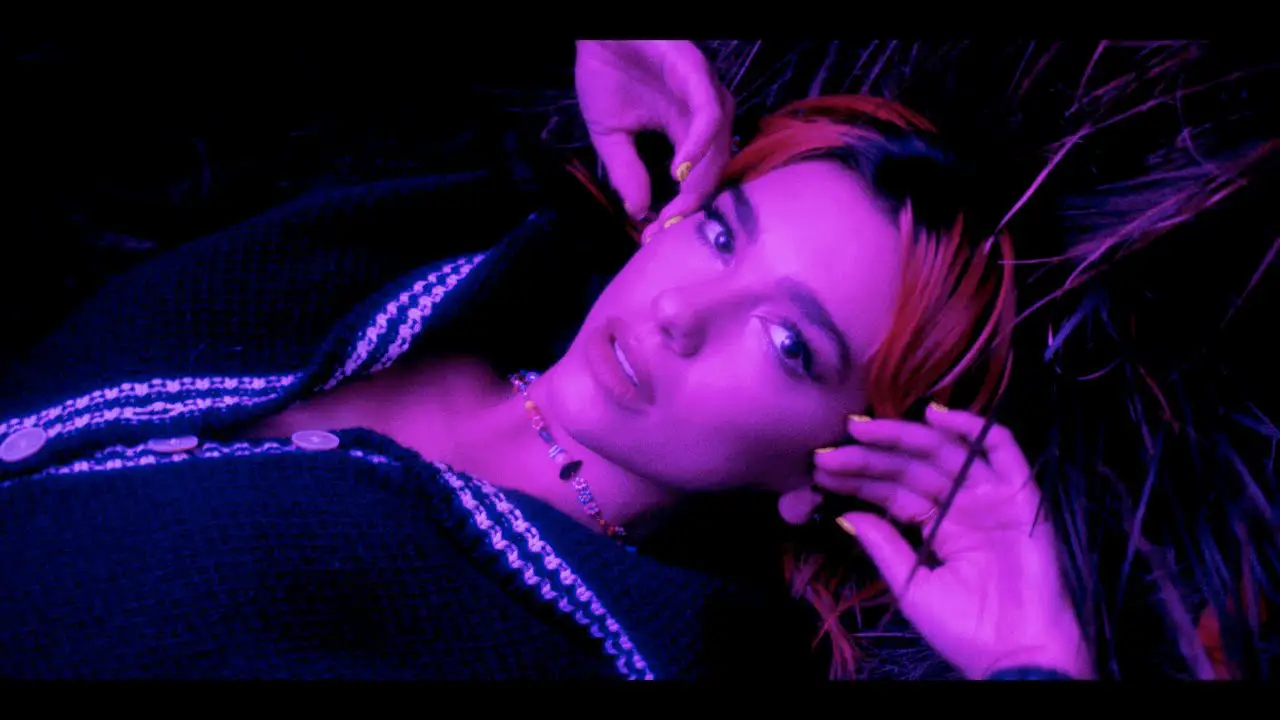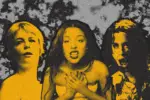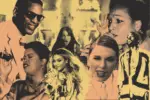In March of 2020, right at the beginning of the pandemic, English singer and songwriter Dua Lipa released her second studio album, “Future Nostalgia.” The disco dance-pop project garnered critical success with two Grammy nominations — one of which Lipa won — a Brit Award, deluxe and remixed versions of the album and four Billboard Hot 100-charting singles. Lipa is currently on tour in America in support of the album. One of the previously mentioned singles includes “Levitating,” an electro-disco track with a popular remix featuring rapper DaBaby, which was released prior to his public homophobic comments. Now, almost two years after the album’s release, two musical groups are suing Lipa and her record label Warner Records for alleged copyright infringement.
A Basic Breakdown of the Lawsuits Against Dua Lipa
It is important to acknowledge that the information presented on copyright infringement lawsuits concerns the United States’ judicial system. While Dua Lipa is a British citizen who lives and is from London, the two American acts filed complaints with American courts and judges. This detail could seem small, but the legal systems in the U.S. and the UK differ greatly, and both lawsuits would not be handled in the same manner.
On March 1, Floridian, majority-white reggae band Artikal Sound System filed suit in Los Angeles federal court claiming that “Levitating” is too similar to their song “Live Your Life” released in 2017 and that it was “‘highly unlikely that ‘Levitating’ was created independently.’” The second “more-detailed legal complaint,” filed on March 4 in New York by songwriting duo L. Russell Brown and Sandy Linzer, asserted that the “Future Nostalgia” single infringed on the disco songs “Wiggle and Giggle All Night” and “Don Diablo,” tracks released in 1979 and 1980 respectively. This lawsuit, which includes DaBaby, asserted that the opening melody of “Levitating” was a “duplicate” of the melody present in their two songs. Also, the rhythm of the opening phrases in the verses is supposedly similar in all three tracks. Brown and Linzer are seeking damages for an undisclosed amount. Dua Lipa and her representatives have not publicly commented on either lawsuit.
What Counts as Copyright Infringement?
According to the U.S. Copyright Office’s official website, copyright infringement “occurs when a copyrighted work is reproduced, distributed, performed, publicly displayed, or made into a derivative work without the permission of the copyright owner.” Materials considered to be copywritten are original or fixed intellectual properties that are protected “as soon as an author fixes the work in a tangible form of expression.” Some examples of copyrighted works are novels, movies, albums and even social media posts like tweets. In music copyright infringement cases, the plaintiff needs to prove that the defendant violated the law by stealing and repurposing musical intellectual property without the permission of the creator(s).
Another not-as-well-known element of copyright infringement is that the plaintiff must convince a judge and/or jury that the accused thief knowingly exploited another person or group’s intellectual property and purposefully passed it off as their own. When media sources report on music copyright lawsuits surrounding public figures, the focus is on how similar two or more songs from separate artists sound. The sonic aspects of the disputed pieces play a large role in whether or not copyright infringement can be ruled, but those who filed suit must prove that their work was integral to the crafting of the “stolen” material. Intention matters just as much as the actual music. This component of copyright lawsuits is why Artikal Sound System, Brown and Linzer emphasized that Lipa could not have produced “Levitating” without having heard the three tracks.
The Problem with Music Copyright Cases
Even though copyright infringement law appears straightforward, just like in most legislation and legal codes, there is a multitude of gray areas and discrepancies. The main disputed issue in a large portion of these cases is the usage and control of musical tropes. Tropes, in any form of entertainment, cannot be owned or copywritten by a person or group. However, the line between tropes and unique pieces of art is not always clear. Some cases will move forward because of a judge’s lack of knowledge of how to distinguish a trope from original intellectual property.
Connecting these ideas to Lipa’s cases, a YouTube video by Adam Neely analyzes the sonic elements of “Levitating” and “Live Your Life.” He concludes that the melodies from the two tracks as well as their rhythmic qualities are composed of the same musical trope present within past and present disco songs. Some older singles possessing these qualities mentioned were The Jackson 5’s “Blame It on the Boogie” from 1978, Electric Light Orchestra’s 1975 song “Evil Woman” and the 2017 track from DNCE titled “Cake by the Ocean.” Each song contains melodies similar to that of “Levitating,” but none of these singles infringe copyright laws.
Furthermore, Neely addresses the other significant part of a music copyright law case, which is if Dua Lipa stole sonic elements deliberately from the people suing her. Lipa’s process for writing “Levitating” was heavily documented on the podcast “Song Exploder” as the recording has voice memos from the studio, interviews with Lipa and her collaborators and sections discussing the process in chronological order. Nowhere in the episode is Artikal Sound System, Brown or Linzer mentioned.
One could argue that Dua Lipa hid her true inspirations as she “stole” from them. But the idea can be debunked by Lipa’s previous comments about hip-hop duo Outkast’s influence on the album as a whole. She never hid the fact that other artists influenced her work. “Levitating” is most comparable to the pair’s 1998 song “Rosa Parks“; while both singles are sonically similar, the former does not plagiarize the latter. If “Levitating” infringed upon “Rosa Parks,” then Artikal Sound System did as well.
Plus, the songs Dua Lipa allegedly copied are not easily accessible to the general public or well-known enough. “Live Your Life” could only be found on the music streaming service SoundCloud with under a thousand plays, and the tracks written by Brown and Linzer are obscure songs from the ’70s and ’80s rarely discussed in the current pop culture landscape. Lipa and her fellow writers would have had to stumble upon these songs by accident or been informed about them. Of course, Lipa could have unintentionally replicated the melody from their songs, an overused trope, but she did not intend to.
Robin Thicke’s Music Copyright Lawsuit
Lipa’s cases, based on the evidence and understanding of the law, should be thrown out. Regardless of how little ground each of the plaintiffs have, the ruling from other music copyright lawsuits could predict Lipa’s possible loss.
The most famous and controversial case was about Robin Thicke’s 2013 song “Blurred Lines.” Thicke and the collaborators who featured on the track, Pharrell Williams and T.I., were sued by Marvin Gaye’s family for infringing on his 1977 single “Got To Give It Up.” After around 10 months, on March 2015, Judge John A. Kronstadt found Thicke and Williams guilty of copyright infringement and ordered the men to pay $7.3 million to Gaye’s family and give Gaye co-writing credit on the single. An appeal was filed by the defendants in July 2015 but was dismissed. The verdict is one many musical artists then and now disagree with. Sonic similarities between the two can be equated to inspiration and trope usage rather than actual theft. The Thicke lawsuit still affects copyright infringement law to this day.
Impact on Music
Since Thicke’s lawsuit, other singers and songwriters have been served. Some examples include Katy Perry, Lizzo, Lana Del Rey, Drake and Ed Sheeran — a singer also sued for allegedly ripping off Gaye. Also, there have been others accused of plagiarism on social media rather than in a traditional lawsuit. Some of these people include artists like Olivia Rodrigo, Doja Cat, Ariana Grande and TikTok star Bella Poarch. While a portion of the cases and claims have merit, the majority do not.
While the purpose behind these lawsuits is to protect musical intellectual property and creativity, they have had the opposite effect. Songwriters are cautious when creating music in fear of being sued. Some artists have taken out insurance policies on their art. The creative process of artists has been threatened by past rulings, which is made worse by internet trends that falsely accuse singers and songwriters of theft. Music, especially pop music, is an oversaturated market. Overlap from current and previous projects is bound to happen. However, people should not automatically jump to the worst conclusions about songs that sound similar to other ones. Copyright law should be in place, but it needs some major, clearer changes that benefit artists instead of harming them.
















